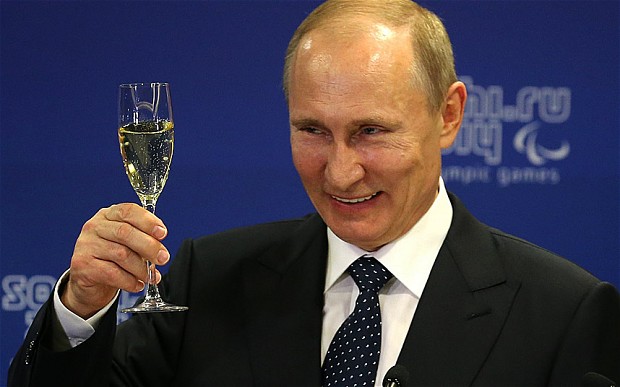Dirty money and hidden assets, crime and corruption schemes, secret meetings and hidden negotiations prevail in the world of realpolitik.
But, even the greatest secrets are eventually revealed.
Ukrainska Pravda recalls the top seven leaks of classified information in the history of Ukrainian politics.
THE MELNYCHENKO TAPES
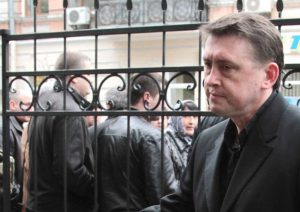
On December 7, 2000, Mykola Menychenko justified his actions with regard to one of the biggest political disclosures in Ukrainian history:
“I swore an oath of loyalty to Ukraine and the people of Ukraine. I did not break my oath. I did not swear to Kuchma that I’d follow criminal instructions. In this regard, I have a clear conscience.”
A week before this declaration, on November 28, opposition leader Oleksandr Moroz strode to the podium of the Verkhovna Rada and shocked Ukraine and the world with the following announcement:
“I have sufficient grounds for my statement, so I am ready to declare that the President of Ukraine, Leonid Kuchma is the mastermind behind the disappearance of journalist Georgy Gongadze, that is he systematically controlled how and when his orders were carried out. The head of the Presidential Administration Volodymyr Lytvyn was closely involved in preparing and implementing the events from the very beginning. The Interior Minister of Ukraine Yuriy Kravchenko was directly engaged in developing the scenario and organizing the operation.”
Moroz told journalists that SBU employees had given him tapes of conversations from Kuchma’s office, on which we can clearly hear the president demanding that Gongadze “be dealt with as soon as possible”. These recordings came to be known as the Melnychenko tapes, destined to become one of the turning points in the history of modern Ukraine.
In the truest sense of the word, Melnychenko did not have any tapes. He claimed that he used digital voice recorders that were allegedly hidden under Kuchma’s sofa.
Since 2000, the “tape scandal” has engendered many rumours, versions and speculations. Did Melnychenko really act alone, as he claimed?
The late Russian oligarch Boris Berezovsky, who himself spent a lot of money to decipher the tapes, later claimed that the Kremlin was behind Melnychenko. Other Ukrainian politicians pointed to the possible involvement of the United States, where the disgraced officer fled after the publication of his recordings. Many people doubt that Melnychenko actually recorded anything at all, that he was just a puppet for the whole operation.
By and large all this does not matter if we look at what these recordings actually revealed.
First, the Pechersk District Court refused to recognize the tapes as evidence in the case against Kuchma as it had to be proved that Melnychenko followed legal procedure when he planted his dictaphones. Second, the “tape scandal” was and still is an important event for all Ukrainians as it proved how rotten and horrible Kuchma’s government really was.
What do you call a country where the president requires the head of his administration and the interior minister to find “a couple of Chechens to kidnap and get rid of” the journalist? Where the Interior Minister instructs his generals to murder a journalist, and they strangle him with their own hands? What kind of country is this, and most importantly – how to live through such a scandal, recover and continue?
Ukrainian media and society raised these questions very quickly. On December 15, 2000, thousands of people came out in protest on the Maidan in Kyiv and refused to leave until justice was restored. Students, activists and ordinary citizens launched an action event called “Ukraine without Kuchma”, which, in fact, was a “dress rehearsal” for the Orange Revolution.
However, even the second Maidan did little to help Melnychenko and his tapes. In spring of 2016, the new Prosecutor General’s Office of Ukraine completed court formalities, declared Melnychenko a suspect in an “attempted coup” and convicted him of “treason”.
DECLASSIFIED “TEMNYKY”
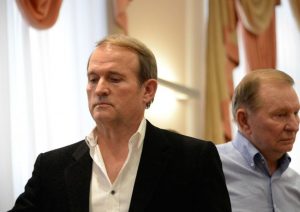
Ukrainians have given the world some things that cannot be translated into other languages, such as “borshch” (beet soup), “varenyky” (dumplings), etc.
Ukraine under Kuchma-Medvedchuk also spawned a phenomenon that cannot be found in other countries. When foreign media began using the word “temnyky” with regard to Ukraine, there was no reason for pride or smiles, but unspeakable shame and humiliation. (From 2001to 2004, “temnyky” referred to secret directives issued by the government to Ukrainian media, containing detailed instructions on how to cover political news and events in Ukraine. The word “temnyk” comes from the name of the document: “Темы недели” (Topics of the Week” in Russian)-Ed.)
For a very long time, no one spoke about the “temnyky”. Anyone who dared to go against the system during the Kuchma-Medvedchuk administration was automatically in grave danger. This meant not only the loss or destruction of a business or career, but also physical annihilation.
The word “temnyky” was first used in 2001. Suddenly, all public and many private media ceased to reflect a diversity of views, and gradually began to resemble a uniform press release. Press articles and TV reports looked and sounded like copied notes that were studied and spread by all media groups.
Journalists suddenly started getting the same “editorial tasks”, and a press conference could end after the first few questions because most of the media were interested in the same issues.
Then, the media community started hearing about these mysterious “temnyky” that their management was receiving from Medvedchuk’s team.
Only one reporter among the thousands of journalists in Ukraine dared to give us (Ukrainska Pravda-Ed.) an entire collection of “temnyky” that had been sent out to various editorial offices. This person understood the risks he was taking. We still have not named this source although time has passed and three presidents have served their term.
The first published “temnyk” became an instant sensation. First, a simple comparison showed that news reports in different media converged with official instructions. Second, published materials exposed the secret side of Ukrainian politics, which was then run by Viktor Medvedchuk.
“Temnyky” were dispatched as comments and recommendations, but everyone who encountered them knew they were totally binding “recommendations”.
The media gradually learnt of a “professional team” working to enhance Kuchma and Medvedchuk’s image and serving their political interests.
It turned out that Russian political strategists – legendary Marat Gelman and Igor Shuvalov – were defining strategies and tactics for total control of Ukrainian information. Another pillar of Kremlin propaganda was Russian political scientist Gleb Pavlovsky. They brought in information technologies that were working so successfully in Russia.
They were assisted by local “talents” like Serhiy Vasilyev, whom Medvedchuk introduced into Kuchma’s Administration and Mykhailo Pohrebinsky, whose Centre for Political Studies actually did all the “dirty” work.
The situation did not change even when these “temnyky” were disclosed and their illegality was exposed. Instead, Ukrainian politicians rushed to make good use of this “best practice”.
For example, in 2003, Prime Minister Viktor Yanukovych launched another self-promotion campaign in the regional press. The Group 300 was created for this purpose. Their objective was to provide “temnyky” to government-controlled newspapers.
Only the Maidan managed to change this situation. However, no one has been fined, condemned or punished for this so far…
Read more about “temnyky” here.
YANUKOVYCH-TYMOSHENKO “SHYRKA” (BROAD COALITION)
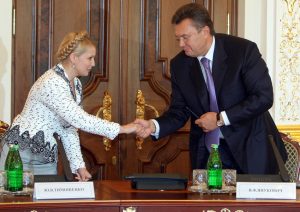
Ukrainian politicians have always tried to rule the country instead of managinhg it.
This desire to rule can work miracles in Ukrainian politics; it can turn ordinary people into dictators and unite the most irreconcilable of enemies. The most striking examples are the notorious negotiations leading to the creation of the so-called “shyrka” (broad coalition).
In 2009, the conflict between President Viktor Yushchenko and Prime Minister Yulia Tymoshenko, both of whom came to power after the Orange Revolution, escalated into open war. Tymoshenko began looking for a more predictable and reliable ally.
To everyone’s surprise, Tymoshenko chose the leader of the Party of Regions Viktor Yanukovych, who had been deposed by the first Maidan. In fact, Tymoshenko and Yanukovych’s union looked no less strange than Hitler and Stalin’s agreement in 1939. But, no matter how impossible it seemed, the leaders of BYuT and the Party of Regions began seriously preparing their own “Molotov-Ribbentrop Pact” in the spring of 2009.
Since the agreement contained a clause that prohibited publicly acknowledging the existence of such an agreement, the details of the talks became known only after Yanukovych escaped from Ukraine. Documents and a copy of the “shyrko” agreement were found at Yanukovych’s lavish estate Mezhyhirya.
The document was even more shocking than other details that journalists had managed to discover in 2009.
First of all, Yanukovych and Tymoshenko had planned to rule unchallenged and undivided for at least 20 years, replacing one another as prime minister and president. Yanukovych was to become president in 2009-2010 and 2014, and Tymoshenko would be prime minister. Then they intended to swap positions for two terms: Tymoshenko would be elected president in 2019 and 2024, and Yanukovych would be prime minister.
To achieve their goal, Tymoshenko and Yanukovych schemed to change the Constitution. In 2009, the number of deputies in Yanukovych and Tymoshenko’s factions was sufficient to change the law. To adopt a revision to the Constitution and ensure Yanukovych’s first presidency, it was planned to extend the Verkhovna Rada’s authority for another two years – until 2014.
Tymoshenko and Yanukovych formed a coalition in order to allow BYuT and the PR to ensure the election of Ukraine’s president and the prime minister. The Broad Coalition Agreement prohibited any of the parties to leave the coalition under any circumstances. BYuT and PR planned to stand as a single block in all upcoming elections.
But, the division of office was by a large not the most shocking piece of news. The Yanukovych-Tymoshenko agreement divided Ukraine into two separate principalities, where each “slave” was counted. Each political party was given control over half the people of the country: Yanukovych was awarded 21-22 million citizens, Tymoshenko got 22-25 million.
However, history has the magical ability to repeat itself. Hitler’s pact with Stalin collapsed unexpedly in June 1941 when everyone thought the two tyrants had finally divided the world between themselves. The “shyrka” collapsed in a similar way, just a step away from never-ending domination of Ukrainian politics by ByuT and the PR. As Tymoshenko said so very tersely: “Everything’s lost!”
WIKILEAKS
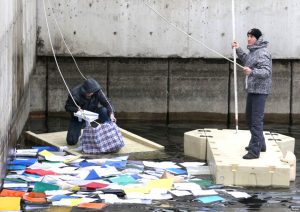
The world is interesting in its unpredictability. Entangled in hundreds of protective systems, it stands completely defenseless before its own technical achievements.
This has a special meaning for politicians. People who are accustomed to saying one thing in public and doing the exact opposite in private at some point realize that there’s very little room for secrets. However confidential the conversation, you can never be sure that your words have not been revealed to the public, even if you are speaking with a representative of the US State Department.
Wikileaks was the first cold shower for politicians everywhere. In November 2010, an unknown source revealed hundreds of thousands of letters and secret dispatches issued by US diplomats.
This marked the beginning of several global leaks of classified information and the war on Wikileaks founder Julian Assange.
Leading Ukrainian politicians also came under fire in the Wikileaks report. Secret correspondence between American ambassadors and the US government shed light on many interesting situations in Ukrainian politics.
In a frank conversation with Ambassador William Taylor, Ukrainian oligarch Dmytro Firtash tried to whitewash himself and protect his gas asset – RosUkrEnergo – from Prime Minister
Firtash admitted that he and another oligarch, Rinat Akhmetov, had tried to prevent the coalition between BYuT and the Party of Regions. Both oligarchs wanted the PR to support Viktor Yushchenko’s faction – Our Ukraine – in the Verkhovna Rada.
In addition, Firtash acknowledged that he was the owner of Inter Media Holding, something almost no one was aware of in Ukraine at that time.
Firtash, who modestly called himself an “informal adviser” to Yushchenko, admitted having links to one of the main ringleaders of the Russian criminal world, Semyon Mogilevich.
Interior Minister Yuriy Lutsenko was no less talkative in his conversations with Ambassador John Herbst in 2006. Lutsenko, who is currently head of the General Prosecutor’s Office of Ukraine, told the US ambassador that the Prosecutor General Oleksandr Medvedko had ordered an arrest warrant for Tymoshenko’s closest associates, namely former SBU director, Oleksandr Turchynov and his deputy, Andriy Kozhemyakin.
They were suspected of destroying files related to the investigation of Mogilevich, led by the SBU. However, Lutsenko told the Ambassador that he would annul this case as he suspected Tymoshenko’s longtime foe Poroshenko was behind it all.
Former President Kuchma also came up on Wikileaks. He had a secret conversation with US Ambassador John Tefft before the dramatic second round of presidential elections in 2010.
Kuchma explained that the choice between Yanukovych and Tymoshenko was a choice between “the lesser of two evils”. He thought Yanukovych was the “lesser evil”. Kuchma also hinted that Russia had “sufficient leverage to restrain Tymoshenko”.
Another Wikileaks document reported that Yanukovych was able to win the election after Russian President Medvedev managed to convince Vladimir Putin not to support Tymoshenko. In other words, Putin agreed to support Yanukovych in exchange for placing his own people in Ukrainian law enforcement agencies. It is more than likely that the fate of Crimea and the Donbas was decided then.
In 2010, Kuchma prophetically told the US ambassador that “Russia would never give up on its dream to return Sevastopol”.
As it turned out, our politicians were more open and frank in their conversations with representatives of the State Department than with their people.
THE ASSAULT ON EUROMAIDAN
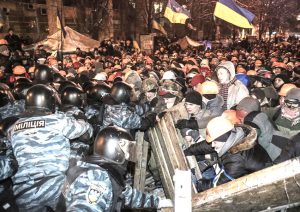
In early 2014, while activists and citizens stood in protest on the Maidan in Kyiv, more and more state security divisions were being sent to the capital. The violent demonstrations on February 18 only intensified the uneasy atmosphere.
On the night of February 22, Yanukovych’s suddenly disappearance from Ukraine was followed by the disappearance of thousands of internal troops and Berkut officers from the streets of the capital. Then, security forces and politicians began claiming that no one had really planned to disperse the Maidan.
However, all doubts vanished on February 24, 2014. One of the leaders of the protest movement, Deputy Hennadiy Moskal published a detailed terrifying plan cooked up by elite special operation units Boomerang and Khvylia. It specified that not only did Yanukovych want to disperse the Maidan, but he had been seriously preparing this counter-attack on Maidan activists.
Moskal pointed out that he had received the document from “patriotic employees at the Ministry of Internal Affairs and the SBU”. The plan was clearly outlined, naming all the government departments involved in the assault and weapons to be used.
The assault operation was to be launched after a fake “Pravy Sektor explosion” on the Maidan. Several thousand troops and SBU forces would immediately move in from several directions with heavy weapons and military equipment. Other assaults were planned as “distractions” on the corner of Khreshchatyk and Luteranska and Khmelnitsky Streets.
Three SBU special operation units were to storm the Trade Union Building. They were supposed to capture and seize Maidan Headquarters by mounting attacks through windows, doors and the roof. A military helicopter was even mentioned in the assault landing of Alpha troops on the roof of the building.
The assault teams were to be heavily protected by weapons and snipers.
This was the first official confirmation that Euromaidan activists were shot down by Ukrainian snipers.
Moskal then declared that these documents proved “that the snipers on Instytutska Street were members of a special operation unit headed by Colonel Asavalyuk and fighters from the Omega unit.
Moskal provided additional information on a “former first deputy of Russia’s GRU, who was staying at the Kyiv Hotel at that time and had helped prepare these MIA and SBU special operations”.
Later on, as the post-Maidan government consolidated its position, more and more information on the Euromaidan assaults was disclosed, the “Russian trail” appeared and then disappeared, and Berkut commanders were arrested and then released.
However, Moskal’s words on February 24, 2014 have not lost their initial impact:
“Instead of launching an objective investigation of these crimes, which is now very possible, our judicial system has started playing games and attempts to shield the real perpetrators.”
PANAMA PAPERS
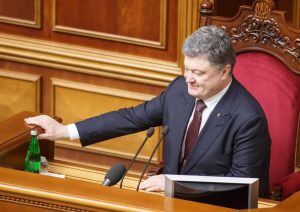
Some Ukrainians are slowly but surely integrating into the Western world. Their families live on the French Riviera, their children go to British schools, and their companies are registered in offshore zones. It’s just a pity that there is only a small number of such integrated Ukrainians!
At first glance, there is nothing wrong with wealthy people spending their money as they please. But, a closer look gives us a very strange picture: the list of wealthy Ukrainians coincides with the list of people in top government positions.
Moreover, the nominal wages and tax declarations of these officials cannot explain where they get the money for such a grand lifestyle.
In Ukraine, it is no secret that government officials live on “side earnings” that they make thanks to their government positions.
Ukrainians pinned all their hopes of changing this situation on the second Maidan. But, the new government that came to power after the Revolution of Dignity quickly quashed all these hopes.
On April 3, 2016, Ukrainians were not really surprised when President Petro Poroshenko’s name came up in the Panama Papers. Surprise was quickly replaced by indignation.
What happened? International journalist organizations accessed a vast array of documents of a Panama company – Mossack Fonseca – which provides offshore services.
They found documents testifying to links and relations between Ukrainian officials and hundreds of secretly registered companies.
On the one hand, the Ukrainian file is very small. But, the fact that the president of our country heads the list gives it added weight.
Other persons mentioned in the offshore scandal – one of Poroshenko’s closest friends, Ihor Kononenko, his managers and other close people, and his business partner and deputy head of the National Security Council, Oleh Hladkovsky… even though Poroshenko’s team in the Panama scandal was quite modest in comparison with the Yanukovych Clan,.
General speaking, Poroshenko could not be accused of committing a crime for moving his business assets offshore, but the Panama papers quickly became a symbol for all Ukrainians.
The scandal pointed to the fact that Poroshenko’s Ukraine was not so very different from Yanukovych’s Ukraine. Where are the promised changes if major foreign managers are afraid to tackle the president’s assets?
It’s also symbolic in that there is no transparency in Ukrainian business. How else should we call a situation where information about our president’s company is leaked through a Panama firm and not by official press services?
And most importantly, it’s symbolic in that loud public promises delivered in the inaugural speeches will not be implemented unless civil society is watching closely.
THE “BLACK LEDGER” OF YANUKOVYCH’S PARTY OF REGIONS
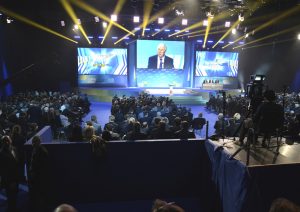
Politics is a dirty and expensive game. In fact, the dirtier it is the more expensive it becomes. Politics has never been particularly honest in Ukraine, so it is clear that the Ukrainian political tango is ruled by big money.
Since independence, the Soviet party nomenclature has been gradually replaced by industrial and oligarchic groups. Previously, the party line defined a politician’s position, but today it depends on his connection to a financial source. The media write about this and the politicians talk about it.
Never before in the history of Ukraine have any major documents been revealed that would allow society to evaluate “the scale of the game”. This is not surprising as who would document the shady deals used to corrupt the state system, thereby creating evidence against himself? Unless it were a fool or someone who intends to rule forever.
Documents covering the payment of bribes from ousted President Viktor Yanukovych’s Party of Regions to Ukrainian officials and politicians were released, revealing a massive network of bribery, amounting up to $66 million.
On May 31, 2016, Ukrainska Pravda first showed a small part of the “black ledger” of the Party of Regions that fell into the hands of former journalist and deputy Serhiy Leshchenko.
Another figure involved in the release of the documents was Viktor Trepak, former deputy head of the Ukrainian Security Service (SBU), who resigned in protest at obstruction from Prosecutor General Viktor Shokin in November 2015. According to Trepak, the Party of Regions allocated colossal under-the-table payments – up to $2 billion – to buy the loyalty of law enforcment agencies, including the infamous Berkut riot police.
The materials prove that the authorities remained corrupt all the way through as presidents, cabinets and parliaments replaced each other. The methods of obtaining power also remained the same: bribery, deception, rigging and intimidation. Moreover, everyone and everything was bought : security forces, government officials, deputies, judges, politicians, experts and the media.
The Party of Regions’ power pyramid was built so as to make all the players accomplices in crime and obedient servants of the general system.
Once a person put his signature next to the signatures of hundreds of other “important personalities”, there was no way back. It was impossible for anyone to escape off this galley; either you rowed along with the others or you drowned!
Trepak has submitted all the documents to the National Anti-Corruption Bureau.
Today, Ukraine is on the verge of something grand. It will be either a triumphant march against corruption or a spectacular fiasco. It’s coming soon…





